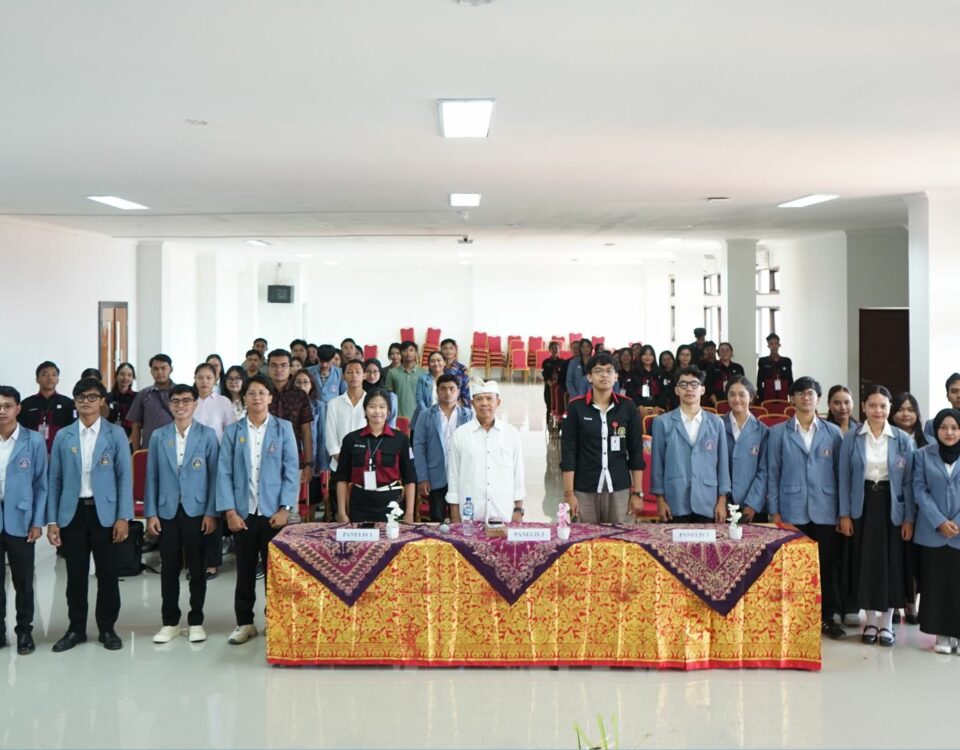Singaraja- The development of the digital era has encouraged ease of publication and access to various information. This information needs to be addressed critically by the public, especially the millennial generation, to avoid negative things. This was emphasized in the Media Literacy activity carried out by the Bali Regional Indonesian Broadcasting Commission (KPID) in collaboration with the Faculty of Languages and Arts, Ganesha University of Education (Undiksha), Friday (14/4/2023).
This digital literacy carries the theme “The Literacy Movement of a Million Television and Radio Viewers in Bali in the Digital Media Era”. The activity which was attended by television and radio practitioners, as well as Undiksha students presented speakers, Chair of the Bali KPID, I Gede Agus Astapa, M.M and Head of the Department of Indonesian and Regional Languages of Undiksha, Dr. I Wayan Artika, M. Hum.
Confirmed after the activity, Agus Astapa said that digital literacy really needs to be continuously encouraged in order to increase people’s intelligence in managing information. Don’t let the information received be digested right away without any filtering before it is shared again with a number of people. This will have the potential to have an adverse impact. “So with this literacy, we hope that they (the public, ed) will be smarter in sorting and selecting information that is educational, entertainment, as well as social device control. That is the challenge for all of us,” he said.
This man from Banyuatis Village, Banjar District, Buleleng also alluded to the millennial generation’s interest in watching television and listening to the radio. This is one of the challenges faced by broadcasting institutions in Bali. He emphasized that conventional television and radio media still have a very important role as information verifiers. “So people will definitely think about how later information on social media is believed to be untrue, can it be controlled or verified on TV or radio for the truth. That means responsibility and is a very big opportunity for TV and radio, that people are still very fond of and have their trust in them,” he said.
However, the development of digital media can be used as a reflection by broadcasting institutions in order to maintain their existence in society. Television and radio are expected to converge and innovate. “For that, we have to work together to adapt technological advances. If not, it will be increasingly abandoned and that is what we always instill in broadcasting institutions, especially TV and radio,” he added.
Meanwhile, Deputy Dean III of FBS Undiksha, Dr. I Nyoman Sila, M.Hum, who represented the Dean opening the activity, stated that he fully supports this media literacy movement. According to him, in this era of very easy access to information, strengthening understanding and increasing the critical attitude of the community, especially students is very important. “This is very important for the younger generation who often play on social media so that things that are published do not contain negative things, such as SARA, divide unity, or anything related to pornography. So from this literacy, they can learn which ones are worth conveying,” he said.
Delivered further, in the academic field, students also learn to design media, both visual media and digital media. Therefore, it is very important to be given an understanding of educative works. (hms)






